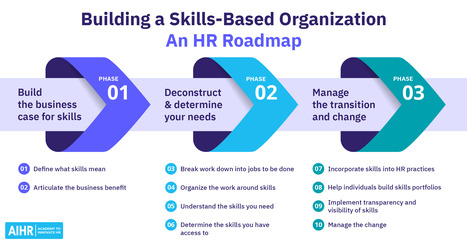Too often we hide behind our titles and adopt a suit of armour that has been handed down by generations of strong managers. If we were to lose that suit of armour, and become human, then surely we will show weakness that will be exploited. On the contrary, human managers are the strong ones. Those who are prepared to say “I don’t know the answer,” “I screwed that up” or “I’m having a tough time right now.” Doing this in a more modern world brings with it respect and a level of empathy that builds a truly human connection, writes Mark LeBusque
“The old rules are crumbling and nobody knows what the new rules are. So make up your own rules.”— Neil Gaiman
Why are organisations hanging onto a management style and rulebook for managing humans that was established over 100 years ago?
It doesn’t make any sense to me at all.
I say it’s time to throw out the old rulebook, and it starts with ceasing the reinforcement of archaic management misconceptions about the dangers of being too human as a manager.
Here are my five misconceptions that you’ve no doubt heard or been given in the unofficial ‘managers rulebook’ that’s handed out when you are taking the big step into managing people:
Don’t get too close to your people
This has been rolled out in every Management 101 handbook since the days where humans stood on a production line undertaking purely transactional-based activities. They’re only units of labour, not worthy of a manager’s time to build a human relationship with. Why would you do that? It only makes it harder when you have that difficult conversation and maybe even fire them one day. How wrong we have been on this one. Building deep relationships helps to create a connection and level of trust that takes away the “us and them” mentality. It inspires and motivates humans to tap into their discretionary effort and even come up with innovative ideas they are willing to share.
Listening, curiosity, creativity, emotional intelligence, people management and cognitive flexibility are just some of the skills the progressive managers now have in their kit bag. It’s not about how many widgets you’ve sold, made or designed anymore. It’s about how you use a human approach to allow others to do this important work.
Being human opens you up to showing weakness
Once we strip away title and rank, all we have left is a human being. That’s what organisations are made up of. Too often we hide behind our titles and adopt a suit of armour that has been handed down by generations of strong managers. If we were to lose that suit of armour, and become human, then surely we will show weakness that will be exploited. On the contrary, human managers are the strong ones. Those who are prepared to say “I don’t know the answer,” “I screwed that up” or “I’m having a tough time right now.” Doing this in a more modern world brings with it respect and a level of empathy that builds a truly human connection. It will also give others permission to step into their vulnerability.
There are two of you – a manager and a human, don’t mix them up
There’s a real craziness about this idea that we have to show up as two completely different humans’ dependent upon the environment. You know how this goes. Be totally professional at work, roll out the corporate lingo, impress the boss, be the boss, toe the company line and above all, just keep hitting those damn numbers. Once you leave the office, it’s ok to relax a little once in a while (as long as you’re also up for swapping back when that email or call needs attention late at night), be that goofball, share a few mum and dad jokes, get around in your daggy clothes pursuing some strange hobby. Here’s my tip. Just turn up as you.
You need to know the job technically to gain the respect of the team
Here’s another old corporate fairy tale.
You’d better know the technical aspects of the job in order to be respected by those who you are managing. In case you haven’t heard, there are these humans today who have future-proofed their careers by developing transferable skills. These skills are used to inspire, engage with and motivate other humans to do the technical work they love doing. Listening, curiosity, creativity, emotional intelligence, people management and cognitive flexibility are just some of the skills the progressive managers now have in their kit bag. It’s not about how many widgets you’ve sold, made or designed anymore. It’s about how you use a human approach to allow others to do this important work.
Building deep relationships helps to create a connection and level of trust that takes away the “us and them” mentality. It inspires and motivates humans to tap into their discretionary effort and even come up with innovative ideas they are willing to share.
There’s no way to measure the “human stuff”- show me the data and I’ll be Human
“If you can’t measure it you can’t manage it.”
These nine words are almost the final resistance to accepting in order to be successful we don’t have to measure everything to its minutia. When you hear this, be sure that it is the old management system nearing its last stand. The thing is this. Why would we want a KPI sheet to capture how many times we were helpful, thankful, caring and open to having fun, or even worse, showed empathy or vulnerability? Measurement is important, don’t get me wrong, but we should be very careful to use it as the only way to gauge success.
When someone hands you a copy of the 100-year-old rulebook, politely say “thanks, but no thanks.”
That’s what it is to be human.



 Your new post is loading...
Your new post is loading...














